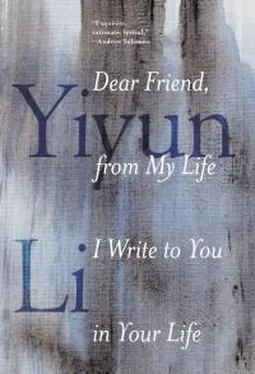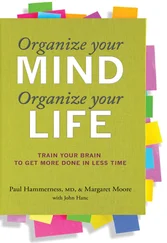see
this all right, but, I think, interpret it as deliberate and hostile deceit. It doesn’t seem like that to me, more like making life livable.
This insufferable effort to make life livable, a refrain throughout Larkin’s letters, is the same philosophy that dictates Thomas and Anna’s life in The Death of the Heart. Even if one finds that frustrating, one has to fear for them. They are sabotaged by Portia, whose every effort is to make life unlivable unless it is lived on her terms.
Larkin’s continuous self-accusation and his continuous effort to excuse himself lead me to think he lived an emotionally honest life and bore the pains well. But this impression must have come from reading years of his letters in a few months. Of course he lived through time, endured it even: lone bicycle rides in the rain, unaccompanied evenings of cooking inedible food, long nights of waiting for the broadcast of Handel’s music, trouble with friends and family and lovers, quarreling in letters and on the phone with Jones, breakdowns, hurtful silence.
I’m terrified of the thought of time passing (or whatever is meant by that phrase) whether I “do” anything or not. In a way I may believe, deep down, that doing nothing acts as a brake on “time”—it doesn’t of course. It merely adds the torment of having done nothing, when the time comes when it really doesn’t matter if you’ve done anything or not….Perhaps you take more naturally to doing nothing than I do.
I envied Larkin when I read this passage after another hospital stay. My life was on hold. There were diagnoses to grapple with, medications and protocols to implement, hospital staff to report to, but they were there only to eliminate an option. What was to replace it I could not see, but it was not within anyone’s capacity to answer. It is easier to take something away than to give. Giving requires understanding and imagination; taking away requires only resolution and action.
Is the wish to escape suffering selfish? It is considered so with suicide. But even less extreme escapes leave wounds in others’ lives. The Death of the Heart is not only a study of selfishness, but also a study of the struggle to escape suffering. To whom the damage is done no one wants to ask.
This is the question that unsettles me more: Is suffering selfish?
For as long as I can remember my mother has spoken of me as a selfish person. If I were religious, I would kneel nightly for salvation from this sin. There is no measure to quantify selfishness: how much of oneself is devoted to others, or even which part of life is to be lived and which part given up. All my life I have failed to prove myself unselfish.
Once, when I implored my mother to imagine how my sister must have felt as a child, being made known to be the less pretty, less smart, and thus less favored daughter, my mother started to cry. When she was four, I bought a new blouse for her for the new year even though I didn’t feel well enough to go to the store, she said. How can you say I mistreated her? After my children were born, my mother told me several times that she had never tended us at night when we were infants. Your father had to get up and feed you because he knew my sleep should not be disturbed, she said with such genuine pride that I wonder if everything she has done should be looked at again with more understanding. She may be one of the very few indisputably innocent people I have encountered in life.
Can innocence be called selfish? “Innocence always calls mutely for protection when we would be so much wiser to guard ourselves against it: innocence is like a dumb leper who has lost his bell, wandering the world, meaning no harm,” Graham Greene writes of Alden Pyle in The Quiet American. Only the innocent, I now realize, have the right to denounce selfishness, as the innocent do not have a sense where their selves end and others’ start. In fact, their selves do not end. They have one world, complete and consistent. When we enter that world we are intruders; when we exit we are abandoners; when we don’t abide by the ruling of innocence, we are betrayers.
(Is Marianne Moore’s mother not another figure of innocence? And Turgenev’s mother? All mothers are innocent when they accuse their children of selfishness.)
—
A REAL PERSON, open-ended, can only be approached as a hypothesis. A character in fiction is demanded to be accountable. Some characters are more willing to offer a context. The young women in Jane Austen’s novels, for instance, seek happiness and suffer when happiness is made unavailable, by situation, chance, or folly. No character rebels against this demand more than Sue Bridehead in Jude the Obscure.
Like Larkin, I’m obsessed with Thomas Hardy, particularly his last novel (“like a street accident,” Larkin said of Jude ). Sue is so incoherent that she raises in my mind the question of believability. Not that I don’t believe her as a character—a complaint one sometimes hears as criticism of a less successful character—but I don’t believe a character can achieve inexplicability as she has. “Really too irritating not to have been a real person” was Larkin’s conclusion, and some biographers have suggested Hardy’s first wife as a model.
To say we know a person is to write that person off. This is at times life’s necessity. We run out of time or patience or curiosity; or we depart, willingly or not, from the situation that makes investigation possible and necessary. A person written off may become a character—depending on the charity of memory.
When characters forgo realness—their unknowability—they become real and known to a reader. Sue—I worry that this statement will cause confusion or misunderstanding—is too murkily real to be a character. She starts unknowable and ends so, too. Yet despite my frustration with her, she may be the only character in fiction I would go any length to defend.
There is an episode in Sue’s life that recalls an episode in Mansfield’s life. As a teenager, Mansfield shifted her romantic interest between two brothers. When she was made pregnant by one of them, she hastily married a singer eleven years her senior, but left him the same evening before the marriage was consummated. After a miscarriage and convalescence, she met John Middleton Murry. The two began a relationship, then broke up twice before her previous marriage was legally dissolved and they married.
Sue, a generation before Mansfield, is living with a university student in a platonic relationship before she meets Jude. Her attitude toward Jude, “all this no-you-mustn’t-love-me-well-perhaps-if-you-like-you-may stuff” as Larkin impatiently put it, is read by many, including V. S. Pritchett and Larkin, as coquetry. Still, I find her actions more elusive: her hasty choice to enter a marriage with an older man despite her distaste for him and sex in general; her childish insistence that Jude walk down the church aisle with her, like a married couple, right before her wedding; her impulsive decision to leave her husband for Jude on the condition that they maintain a relationship without any physical contact (and later leaving Jude to remarry her first husband); her acquiescence, eventually, to becoming Jude’s lover while refusing to accept marriage. This “colossal inconstancy,” one suspects, is what Hardy intends as the essence of her character. “Sue’s logic was extraordinarily compounded, and seemed to maintain that before a thing was done it might be right to do, but that being done it became wrong; or, in other words, that things which were right in theory were wrong in practice.”
A good drama could be made of a bohemian Mansfield. She is one of those who tirelessly create contexts for themselves. Nothing—her misjudgments, her unpredictability, the suffering she caused others and herself—would affect our understanding and perhaps even love of her as a character. There are telling details from her journals—passing thoughts, gnawing pains, brilliant sentences that would later find places in her stories. My favorites are the expense lists: mostly entries for daily food, but unfailingly there are envelopes, letter paper, stamps, and sometimes telegrams, altogether more costly than food. Other small expenses I like to read about, too—curtains, boot polish, hair pin, “bill with sewing woman,” “safety pin for Jack,” and “laundry(!).” (In the diaries of Virginia Woolf—her friend and rival—one reads about teas and lunches, rarely the expenses.)
Читать дальше












